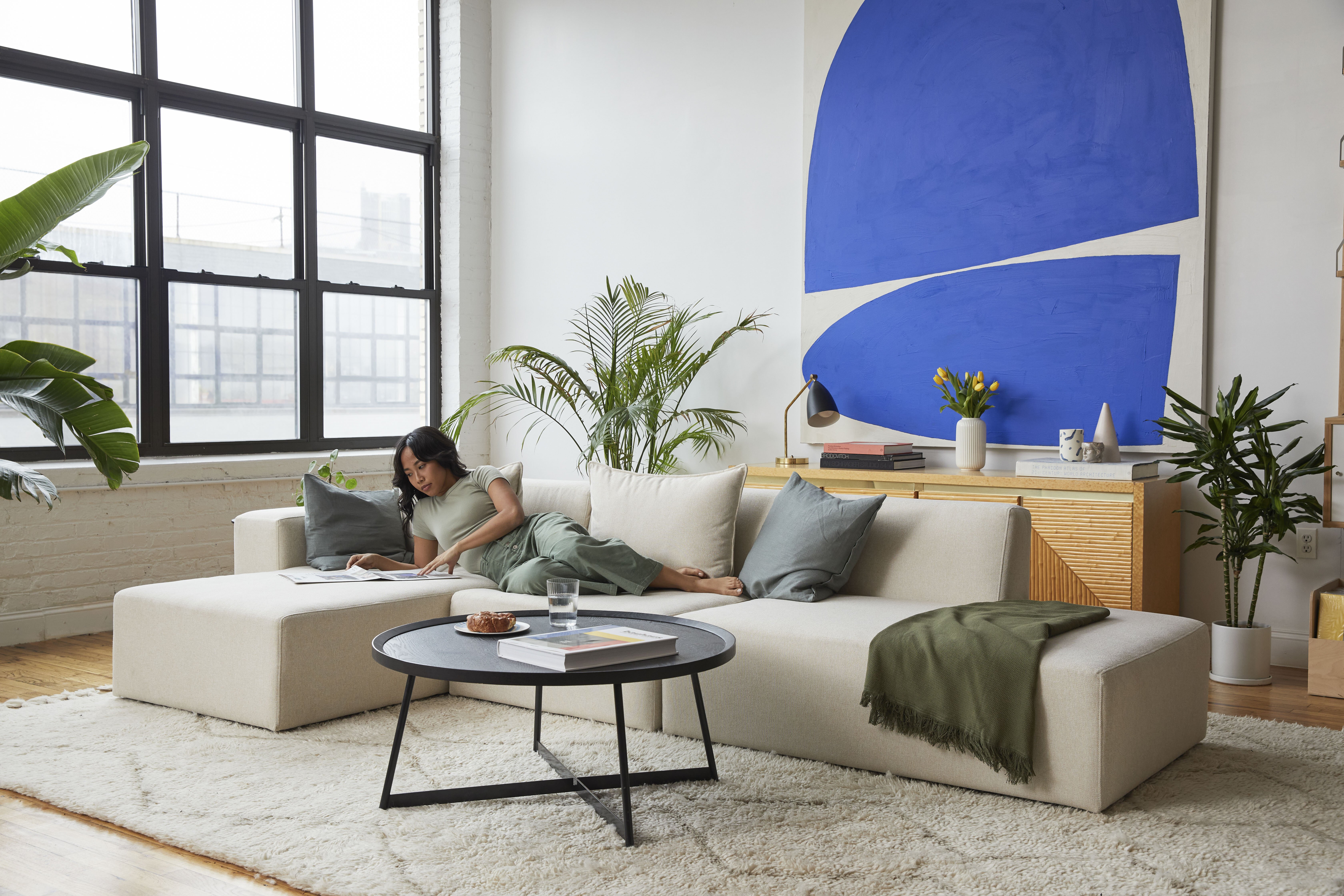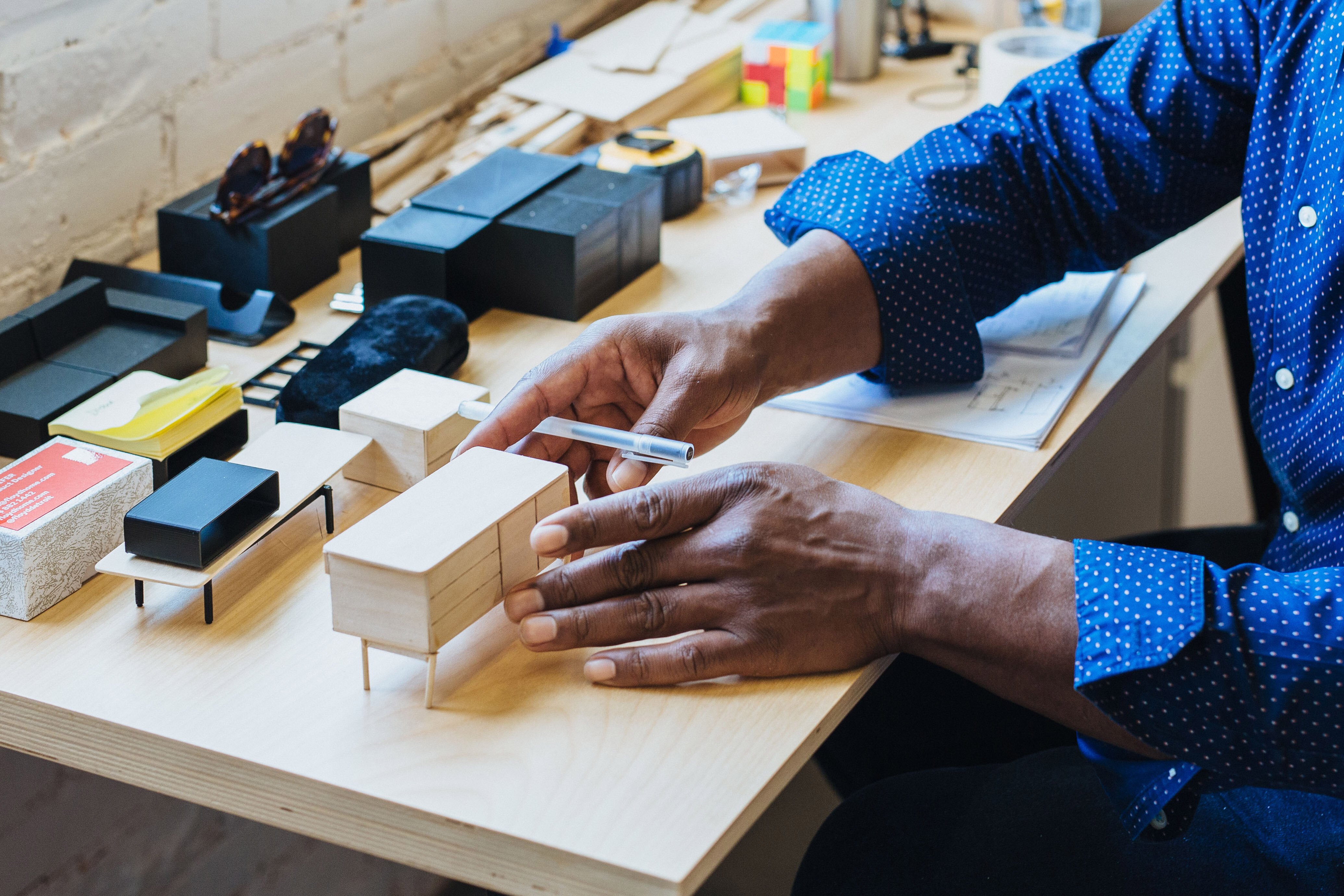Born and raised in Los Angeles, it was right around the beginning of the COVID-19 pandemic when Allen knew that she’d be moving to Detroit. There’s a lot of uncertainty when it comes to moving to a new city, and the beginnings of a global pandemic sure doesn’t help. But Allen knew that she wanted to work for a growing start-up here; she did know that.
A no-brainer, as she calls it.
“After college, making sure I worked somewhere where every employee was treated like an individual — and we weren’t seen as just an army of people, just chugging away — was really important for me. What’s really nice about start-up culture is just that there’s a lot of camaraderie between everybody there, it feels like a family. It’s not a huge corporation,” Allen says.
“It really allows me to be innovative within my role as an employee, to take risks, to do things that would have had to be approved by 10 different people at other companies. The most rewarding thing for me is having that room to explore, to innovate, to really push myself and be able to try things that you may not be able to try at other places.”
Tyler Allen has found just that at Floyd, the Detroit-based furniture maker that has made a name for itself with its line of smartly designed, modular home furniture. In 2013, Floyd co-founders Alex O’Dell and Kyle Hoff started the company from a 100 sq. ft. corner in the old Ponyride coworking space in Corktown. Today, the company operates from its 20,000 sq ft. headquarters in Eastern Market, having grown from two co-founders to nearly 80 employees — and consistently adding more.
The company’s growth is such that it might be hard to even call it a start-up anymore; Floyd completed a $15 million Series B round of funding earlier this year. That the company has been able to maintain its start-up culture amidst its growth is a testament to its commitment there.

She had an inkling that that would be the case; Allen was impressed with the Floyd brand before she landed in Detroit, when she was shopping for furniture back in Los Angeles. It’s been confirmed now that she’s here.
“When I was looking at what companies were in Detroit, Floyd was the first one that came to mind. I think for me, for the creative person that I am, their photography really stood out as a furniture company. It’s more of an artful and thoughtful approach and has a real design language to it. That’s the kind of company I want to work for,” Allen says.
“I don’t want something where I’m just going to be churning out images that have the same look every single time. I want to try to grow, expand, and innovate, and really build upon the design language that’s already established.”
The “soft” skills
Giving someone like Tyler Allen the space to express herself is just one of many reasons that Tony Rotman, Floyd’s head of product, is fielding so many calls, emails, and messages about current job openings at the company. Floyd’s reputation for its commitment to sustainability and fostering a healthy work-life balance are but two more. It’s that very reputation, in fact, that convinced Rotman to leave his position at IKEA and move his young family from Sweden back to his native Michigan, where he began his new role at Floyd earlier this year.
“I had someone email me the other day for a job posting that’s up right now. And they said that they want to make a difference, they want to get into sustainability, they want to get into what we stand for: long-lasting, sustainable furniture. Those sorts of things are what people gravitate towards more and more. It’s not just a job,” Rotman says.
“I could have done this job, and I have done it, all over the world. For me, it was about who’s making a difference, who’s having fun, and who’s going after the right things.”

In considering candidates, Rotman takes a more holistic approach. If someone is applying for an engineering position, then sure, being trained in engineering is integral to the position. He calls that a hard skill. But soft skills are just as important, he says, and, depending on the position, perhaps more so.
Currently, open positions include Chief of Staff, eCommerce Merchandising Specialist, and Social Media Manager, the latter two of which can be performed in Detroit or remotely.
“Emotional and cultural intelligence are super important. Like, how do they handle people? How do they handle empathy? With human-centered design, it’s especially like, how well do you put yourself in someone else’s shoes? That’s kind of the baseline,” Rotman says. “We’re looking for good people who are good culturally, people who have emotional intelligence on top of the hard skills. So it’s just finding the people that kind of align with our values, but also come from a different place or space or a way of thinking.”
No meetings on Fridays
With their Eastern Market headquarters currently undergoing renovations and a major expansion underway, coupled with the realities of the COVID-19 pandemic, much of the Floyd workforce is currently working remotely. And while Floyd is firmly rooted in Detroit, as is and will be its team of employees, current events have opened the door for hiring people based in other cities and even countries and continents, allowing for a more diverse pool of thought, experience, and background.

It’s been a welcome change from her previous life in the fashion industry in New York City, a world of late nights and few boundaries, she says.
“I actually left New York very specifically for a better work-life balance, and to find a brand that fits my ethics, regarding both sustainability and inclusion. And I felt that Floyd had a genuine commitment to those things,” Stewart says.
Virtual happy hours and the like keep Stewart connected to the team in Detroit. And unofficial-official policies like no meetings after 4 p.m. (Detroit-time), and no meetings on Fridays whatsoever, help maintain the work-life balance that Stewart sought.
Finding a company that aligns with her values has been just as important, as is Floyd’s finding employees that align with their own, too. The fashion industry wasn’t much to embrace change, Stewart says, and amidst issues like the Black Lives Matter movement and climate change, she was looking for a company that was more proactive in its approach to setting a new standard.
“There is a genuine desire to make these changes here. And I think we are moving definitely and firmly in the right direction,” Stewart says. “That, more than anything, was what brought me to Floyd.”
Credit: Source link




















